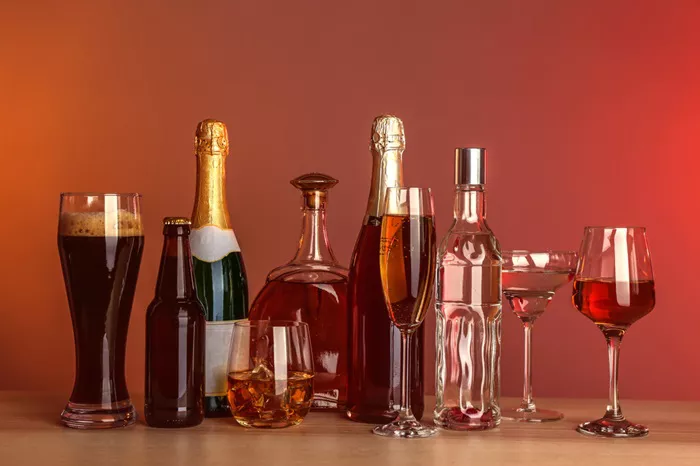In the world of spirits, few debates are as timeless and spirited as the comparison between rum, whiskey, and brandy. Each boasting unique flavors, histories, and cultural significance, these three stalwarts of the liquor cabinet offer aficionados a tantalizing array of choices. But when it comes to deciding which reigns supreme, opinions often diverge sharply. Let’s delve into the nuances of rum, whiskey, and brandy to unravel the complexities of this age-old question.
History and Origins
Rum, whiskey, and brandy each have rich histories deeply intertwined with the cultures and regions that gave birth to them. Rum, with its origins tracing back to the Caribbean islands, is crafted from sugarcane byproducts such as molasses or sugarcane juice. It was a favorite among sailors and pirates during the colonial era and has since evolved into a beloved spirit enjoyed worldwide.
Whiskey, on the other hand, has its roots firmly planted in Ireland and Scotland. Distilled primarily from fermented grain mash, including barley, corn, rye, and wheat, whiskey has been produced for centuries, with each region offering its own distinct variations, from the smoky peatiness of Islay Scotch to the smooth sweetness of bourbon.
Brandy, derived from the Dutch word “brandewijn” meaning burnt wine, finds its origins in the wine-producing regions of France. It is made by distilling wine and aging it in wooden barrels, resulting in a spirit that is renowned for its complexity and depth of flavor.
Production Process
The production process plays a crucial role in shaping the flavor profiles of rum, whiskey, and brandy. Rum is typically produced through fermentation, distillation, and aging in wooden barrels. The type of barrel used, whether oak or another wood, can significantly impact the final product, imparting flavors ranging from vanilla and caramel to oak and spice.
Whiskey production involves similar steps but with variations depending on the type of whiskey being made. Scotch whisky, for example, is distilled twice in pot stills and aged for a minimum of three years in oak barrels, whereas bourbon is aged in new charred oak barrels, giving it a distinct sweetness and depth.
Brandy, being distilled from wine, undergoes a unique aging process that allows it to develop complex flavors over time. The type of grape used, as well as the aging conditions, can influence the final taste, resulting in brandies that range from fruity and floral to rich and nutty.
Flavor Profiles
When it comes to flavor, rum, whiskey, and brandy offer a diverse array of tasting experiences. Rum is known for its versatility, with variations ranging from light and floral to dark and full-bodied. Light rums often exhibit notes of tropical fruits and sugar cane, while darker rums may feature flavors of molasses, spice, and oak.
Whiskey boasts an equally broad spectrum of flavors, with characteristics that can vary greatly depending on factors such as grain composition, aging process, and regional influences. Scotch whisky, for instance, may offer hints of peat smoke, heather, and sea salt, whereas bourbon tends to be sweeter, with notes of caramel, vanilla, and oak.
Brandy, with its roots in the vineyards of France, is celebrated for its intricate flavor profile, which can include hints of dried fruit, nuts, spices, and oak. The aging process plays a crucial role in developing these flavors, with older brandies often exhibiting greater complexity and depth.
Cultural Significance
Beyond their flavors and production methods, rum, whiskey, and brandy hold significant cultural importance in the regions where they originated. Rum, with its association with the Caribbean and the era of colonialism, has become ingrained in the cultural fabric of countries such as Jamaica, Barbados, and Cuba, where it is often enjoyed in traditional cocktails like the Mojito and the Daiquiri.
Whiskey holds a special place in the hearts of the Irish and the Scots, who have been distilling and consuming the spirit for centuries. It is deeply intertwined with cultural rituals and traditions, from the ceilidhs of Scotland to the pubs of Dublin, where it is often savored neat or enjoyed in cocktails like the Old Fashioned and the Whiskey Sour.
Brandy, with its roots in French winemaking tradition, is revered for its elegance and sophistication. It is often enjoyed as a digestif after a fine meal, sipped slowly to savor its nuanced flavors and aromas. Brandy has also found its way into culinary traditions, where it is used to enhance the flavors of dishes ranging from sauces to desserts.
Which is Best?
So, the age-old question remains: rum, whiskey, or brandy – which is best? The answer, of course, is subjective and ultimately depends on individual preferences and tastes. Rum aficionados may argue for the spirit’s tropical allure and versatility, while whiskey connoisseurs may extol the depth and complexity of their favorite dram.Brandy enthusiasts, meanwhile, may champion the elegance and refinement of their chosen spirit.
In truth, there is no definitive answer to this question, as each spirit offers its own unique set of characteristics and experiences. Whether you prefer the bold flavors of rum, the smoky complexity of whiskey, or the nuanced elegance of brandy, one thing is certain – there is a world of exploration and discovery awaiting those willing to raise a glass and embark on a spirited journey through the realms of rum, whiskey, and brandy.
In Conclusion
The debate of “Rum, Whiskey vs. Brandy: Which is Best?” is as spirited as the spirits themselves. Each has its own rich history, distinct production process, unique flavor profile, and cultural significance. The ultimate choice comes down to personal preference and the occasion. So, whether you find yourself drawn to the tropical allure of rum, the smoky complexity of whiskey, or the refined elegance of brandy, rest assured that you’re in for a delightful journey through the world of spirits. Cheers!


